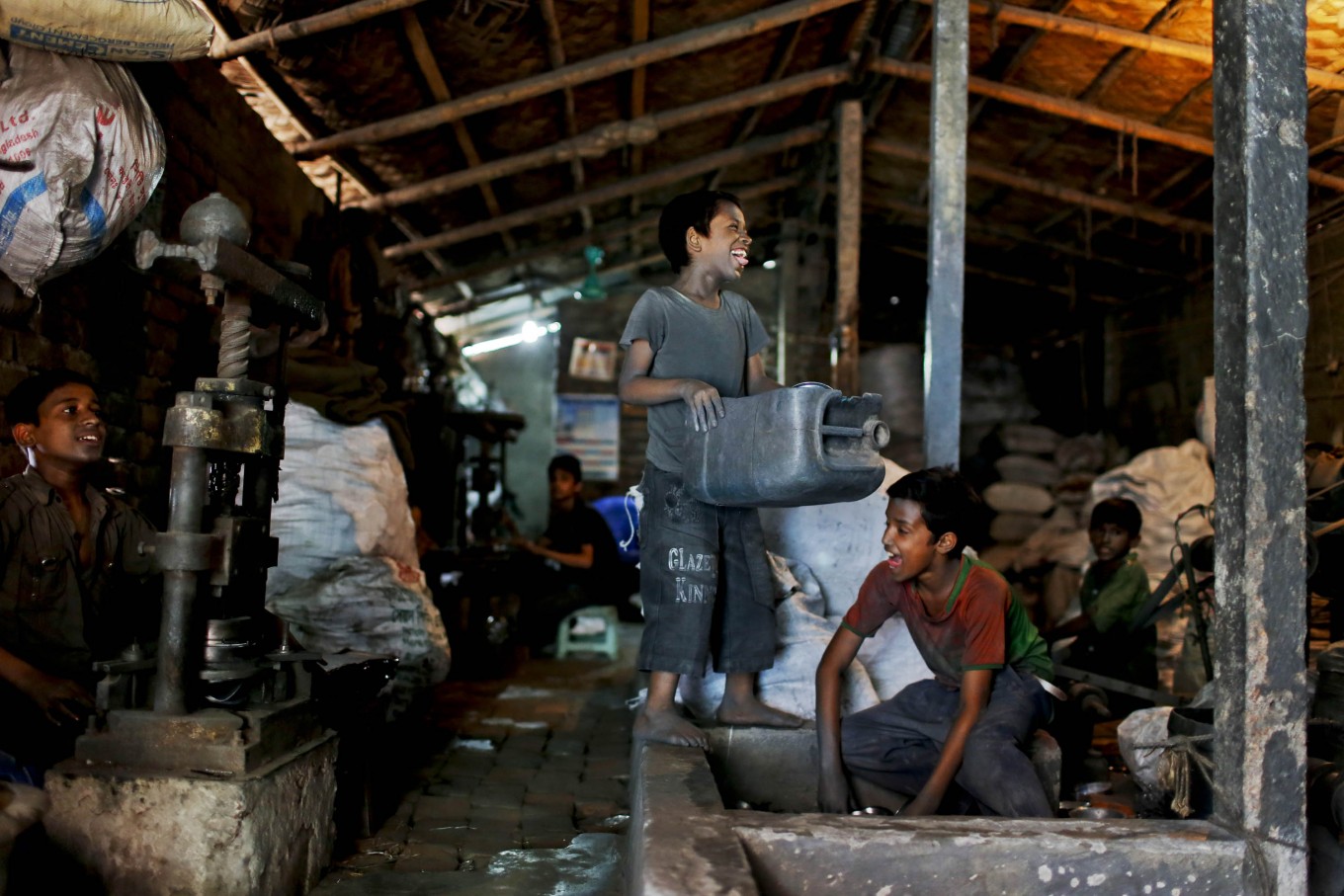Popular Reads
Top Results
Can't find what you're looking for?
View all search resultsPopular Reads
Top Results
Can't find what you're looking for?
View all search resultsAll member states ratify UN child labor convention
Change text size
Gift Premium Articles
to Anyone
 Bangladeshi child laborers share a light moment as they work at a metal factory in Dhaka, Bangladesh, Sunday, June 12, 2016Every member state has ratified a United Nations convention banning the worst forms of child labor, the UN announced Tuesday, in a historic first -- though eliminating such practices remains distant. (AP Photo/ A.M. Ahad)
Bangladeshi child laborers share a light moment as they work at a metal factory in Dhaka, Bangladesh, Sunday, June 12, 2016Every member state has ratified a United Nations convention banning the worst forms of child labor, the UN announced Tuesday, in a historic first -- though eliminating such practices remains distant. (AP Photo/ A.M. Ahad)
E
very member state has ratified a United Nations convention banning the worst forms of child labor, the UN announced Tuesday, in a historic first -- though eliminating such practices remains distant.
The Pacific island nation of Tonga formally lodged its ratification with the International Labor Organization on Tuesday, meaning all 187 ILO member states have done so -- the first convention ever to be universally ratified in the UN agency's 100-year history.
"Universal ratification of Convention 182 is an historic first that means that all children now have legal protection against the worst forms of child labor," said ILO director-general Guy Ryder.
"It reflects a global commitment that the worst forms of child labor, such as slavery, sexual exploitation, the use of children in armed conflict or other illicit or hazardous work that compromises children's health, morals or psychological well-being, have no place in our society."
152m in child labor
However, he was under no illusions that ratification equated to implementation.
The ILO estimates that there are 152 million youngsters under the age of 18 around the world in child labor, with around half in the worst forms, and 73 million doing work considered as hazardous.
Some 70 percent of all child labor takes place in agriculture -- two-thirds of which is unpaid family work -- and is mostly poverty-related.
Nearly one in five African youngsters are in child labor.
"We still have a massive challenge ahead of us," Ryder told a press conference.
"The point here is that when a country takes on legal obligations to act in a certain way, that gives us real leverage to make progress.
"These things really do make an enormous difference but they're not the magic bullet -- and nobody would pretend they are."
The convention was unanimously adopted in 1999, but has now been unanimously ratified.
It calls for the prohibition and elimination of child slavery, forced labor and trafficking and bans the use of children in warfare, prostitution, pornography, illegal activities such as drug trafficking, and in hazardous work.
COVID-19 concerns
The ILO said the incidence of child labor and its worst forms dropped by almost 40 percent between 2000 and 2016, as ratification spread.
The sustainable development goals adopted by all UN member states in 2015 call for the end of child labor in all its forms by 2025.
However, progress has slowed in recent years, particularly for children aged five to 11, and in some geographical areas.
And the COVID-19 pandemic is threatening to reverse progress and result in an increase in child labor for the first time in 20 years.
The pandemic has already wiped out the equivalent of more than 400 million jobs, and as vulnerability grows, families are looking for ways to supplement their incomes to survive.
"The temptation of children being pushed into the market for child labor is correspondingly increased -- and there is evidence that this is happening," said Ryder.









